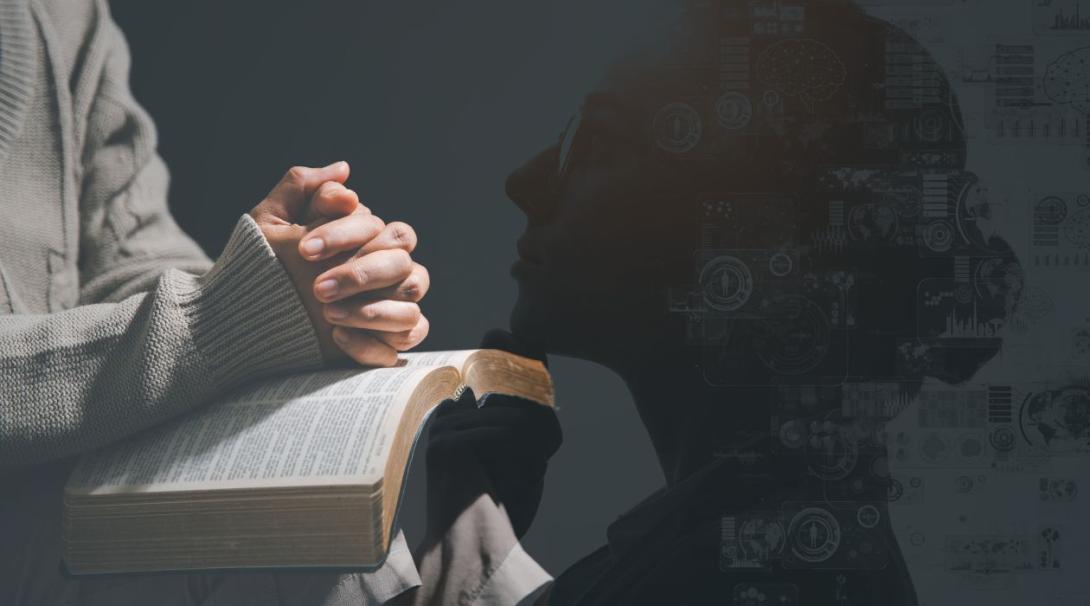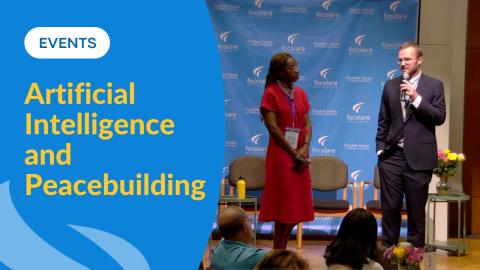
I attended an intriguing conversation at Marquette University yesterday on the topic of “Human Hope in a Pro-Automation Society.” Such an ominous title! Specifically, we gathered to explore what Artificial Intelligence (AI) is doing to alter human life, and whether or not this is good for us.
The speakers were Dr. Luis G. Vera, chair of the theology department at Mount St. Mary’s University in Maryland, and Dr. Mariele Courtois, assistant professor of theology at Benedictine College in Kansas. Both are part of the AI Research Group of theologians, philosophers, and ethicists organized by the invitation of the Dicastery for Culture and Education of the Holy See to discuss issues that Artificial Intelligence poses for life and society. As a group, they wrote a book last year called Encountering Artificial Intelligence: Ethical and Anthropological Investigations, published by Pickwick Publications.
Also, their research group’s work fed into last month’s Vatican document, Antiqua Et Nova (“Old and New”) published by the Vatican’s Dicastery for Culture and Education together with its Dicastery for the Doctrine of the Faith. It is a doctrinal “note” or essay (Forbes.com a few days ago called it a “broadside”!)—endorsed by Pope Francis but not written under his name, as a papal encyclical would be.
Anyone can easily access Antiqua Et Nova in its English translation at the Vatican’s website: www.vatican.va. It is informative, tracing the history of how we got here with AI, starting with a summer workshop at Dartmouth College in 1956, and moving through people like Alan Turing. Then, theological ideas of rationality, embodiment, relationality, truth, and stewardship are discussed.
“We are called to reflect on the current challenges and opportunities posed by scientific and technological advancements,” the new Vatican document states, right at the top, in the first of its 117 paragraphs.
The final paragraph says:
"From this perspective of wisdom, believers will be able to act as moral agents capable of using this technology to promote an authentic vision of the human person and society. This should be done with the understanding that technological progress is part of God’s plan for creation—an activity that we are called to order toward the Paschal Mystery of Jesus Christ, in the continual search for the True and the Good.”
The big question is: how do we get there?
How do we move technology in the right direction? The theologians at Marquette explained what Antiqua Et Nova also says, that technologies can serve the good and the bad. It is up to us to have the moral maturity to go along with our use of what is created to have an obviously major impact on our lives.
Even more basic—and straight to the point for many—Professor Vera plainly said, “Despair is bad,” and we shouldn’t simply give up in the face of what’s new. There are many good people out there, especially those, like me, over the age of 55, responding to AI with despair.
The professor continued: “Every created thing exists in God. It already belongs to God.” And God, who is already somehow present in this technology, is also already there to help us find the best and right ways to incorporate it.
Still, there are parts of creation that are broken and/or disfigured. Nuclear warheads might fit this category. “We can bury them with Christ in a spirit of Christian hope for a new and changed resurrection,” one of the professors explained. Christ redeemed his cross into an instrument of salvation.
At Marquette yesterday morning were forty or fifty people representing students, faculty, staff, clergy, and local Catholics. When we broke for small group conversation, the speakers asked us to ponder: Where is God in the technologies we worry about most? How might “seeing God in all things” when it comes to technologies help us discover ways of “retooling” those technologies in service to justice and the common good?
A phrase from the book of Isaiah, chapter two, “Beating swords into plowshares,” emerged as the best metaphor for how we might respond to AI. The text doesn’t say that swords in and of themselves are just fine, that people are the ones who do good or bad things with swords. No, it says that the sword itself will, in the present and future kingdom of God, be molded into something somehow else. We have to thoughtfully and prayerfully “bend” it to work with our values.













